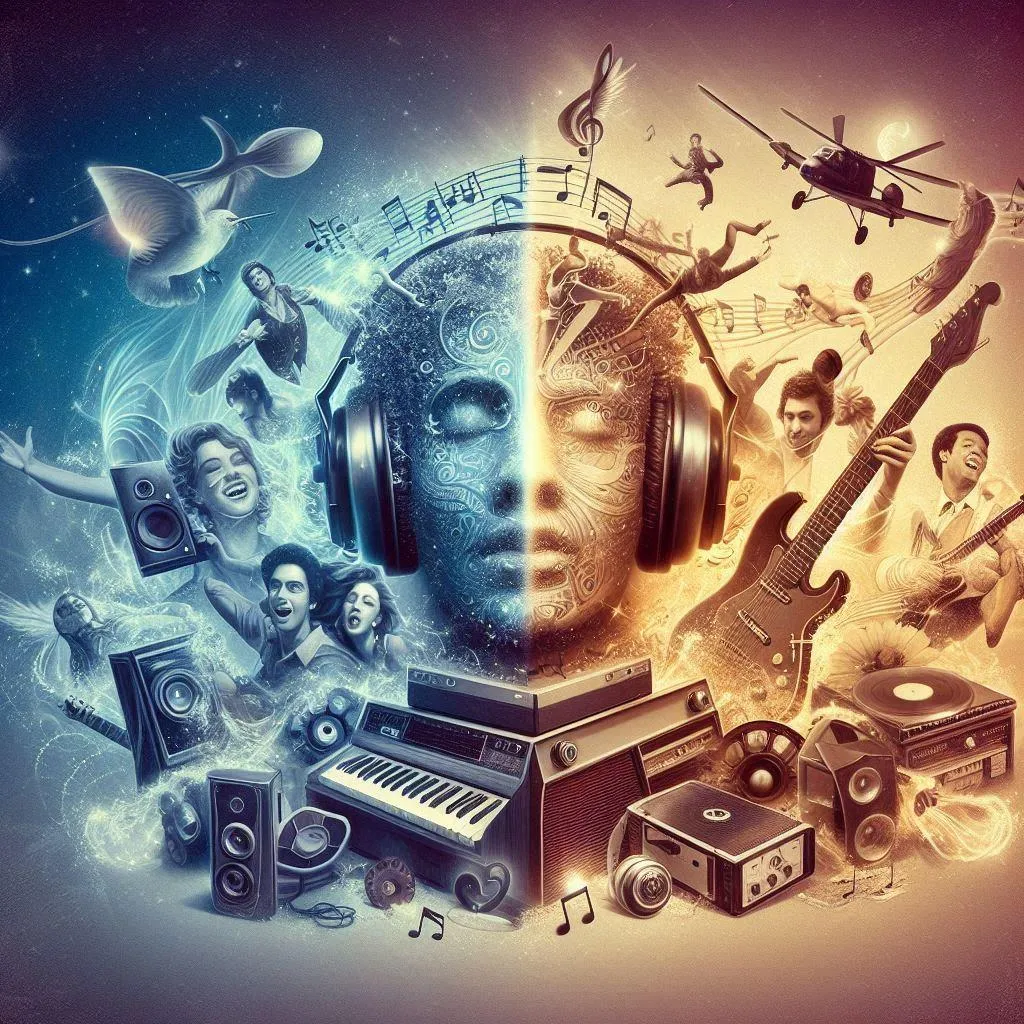
Exploring the Relationship Between Music and Storytelling in Film and Television
Exploring the Relationship Between Music and Storytelling in Film and Television
The intricate relationship between music and storytelling is a powerful aspect of film and television that cannot be overlooked. Composers play a vital role in enhancing the emotional depth, character development, and plot progression through their scores. This section delves into how these auditory elements contribute to the overall narrative experience.
Emotional Depth: The Heartbeat of the Narrative
Music has the unique ability to evoke emotions in ways that dialogue and visuals alone cannot. A well-composed score can amplify the tension in a suspenseful scene or bring tears to the audience's eyes during a poignant moment. For instance, consider the haunting melodies in films like Schindler's List, where John Williams' score elevates the emotional gravity of the story. The violins, in particular, serve as a voice for the characters' suffering, allowing the audience to connect on a deeper emotional level.
In television, series like This Is Us use music strategically to underscore emotional beats, helping viewers process complex feelings alongside the characters. The choice of instruments, tempo, and harmony can all signal to the audience how to feel, making the music an indispensable tool in the emotional storytelling arsenal.
Character Development: A Sonic Reflection
Music also plays a crucial role in character development, acting as a narrative device that reflects a character's inner journey. Thematic motifs associated with specific characters can reveal their growth and transformation throughout the story. For example, in Star Wars, the distinct themes for characters like Darth Vader and Luke Skywalker encapsulate their personalities and arcs, with Vader's ominous theme representing his dark nature and eventual redemption.
In television series, showrunners often use recurring musical themes to signify character evolution. A character's theme can change over time, mirroring their personal struggles and resolutions. This sonic representation allows audiences to engage more deeply with character narratives, enhancing their investment in the story.
Plot Progression: Music as a Narrative Catalyst
Beyond emotional depth and character development, music serves as a catalyst for plot progression. Composers can use music to build tension leading up to climactic moments or to provide relief during quieter scenes. The strategic placement of musical cues can guide the audience's anticipation and reactions, making them feel like active participants in the unfolding narrative.
In thrillers, for instance, composers may employ dissonant chords and rapid rhythms to escalate suspense, signaling that something significant is about to happen. In contrast, a gentle lull in a romantic scene can signal a moment of intimacy or connection, allowing the audience to breathe and absorb the emotional weight of the characters' interactions.
A prime example of music driving plot progression can be found in the Harry Potter series, where composer John Williams skillfully uses musical motifs to foreshadow events and amplify the stakes. The use of the "Hedwig's Theme" not only introduces the magical world but reappears throughout the series to signify moments of enchantment and anticipation, effectively intertwining the score with the narrative arc.
The Collaborative Nature of Music and Storytelling
The synergy between composers and filmmakers is crucial in crafting a cohesive narrative. Directors often collaborate closely with composers to ensure that the music aligns with their vision for the film or series. This collaboration can lead to innovative storytelling techniques, where the music is not just an accompaniment but an essential narrative thread that weaves through the visual storytelling.
For instance, in the acclaimed series Stranger Things, the synth-heavy score by Kyle Dixon and Michael Stein not only evokes a sense of nostalgia for the 1980s but also establishes a distinct atmosphere that enhances the show's suspenseful and often eerie storytelling. The music becomes a character in its own right, shaping the viewer's experience and emotional response.
The Indispensable Role of Music in Film and Television
In conclusion, the relationship between music and storytelling in film and television is profound and multifaceted. Composers have the power to enhance emotional depth, facilitate character development, and propel plot progression, all while creating an immersive experience for the audience. The importance of music in storytelling cannot be overstated; it is an art form that transcends mere accompaniment, becoming a vital component of narrative construction.
As we continue to explore the art of storytelling through music, it becomes increasingly clear that soundtracks do not just elevate film narratives—they transform them, enriching the emotional landscape and inviting viewers to engage more deeply with the stories that unfold on screen. In this way, music stands as a vital force in the realm of storytelling, capable of resonating with audiences long after the credits roll.

